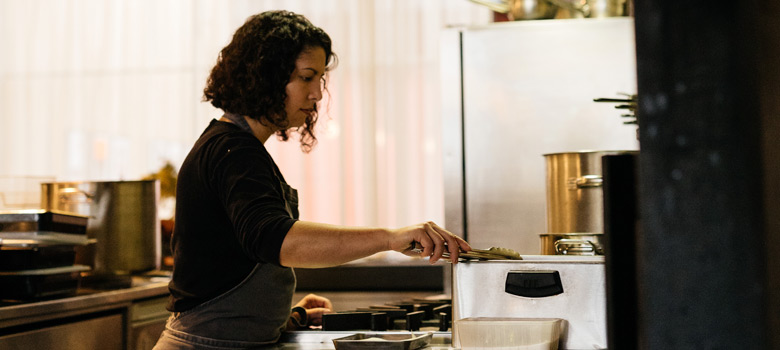
Food
Women in food
Chef Sophie Zalokar’s career began when Maggie Beer paid a visit to her local high school.
“I became a chef by default,” says Zalokar from her home, Foragers Field Kitchen and Cooking School, near Manjimup in Western Australia’s Southern Forests.
“When I was at high school in the Barossa I wanted to be a textile designer, but my parents came from a farming background so they were very keen for me to have a ‘trade’”, she explains. “Maggie approached the school looking for an apprentice. One of my teachers suggested I have a chat with her,” says Sophie. “Maggie was, of course, very enigmatic. She convinced me to join her in the kitchen at Pheasant Farm, and so I began my apprenticeship.”
It was a fortunate launching point. “Maggie opened a window to a world on food I would never have seen without her. Thanks to her, my apprenticeship was creative and philosophical and strongly connected to the culture of a place. Maggie took good, local food to a whole different level, she gave me a foundation that has informed my career for 30-something years,” says Sophie. “I’ve never really thought about it, but now I do, I realise Maggie’s entire kitchen brigade at that time was female. It was a unique place to be for many reasons, not least of all the female camaraderie.”
embracing reinvention
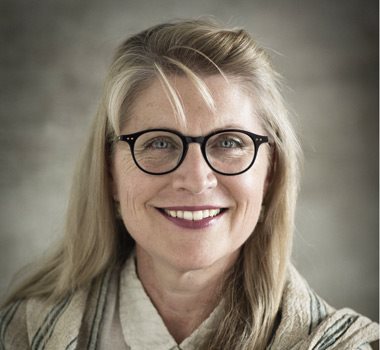
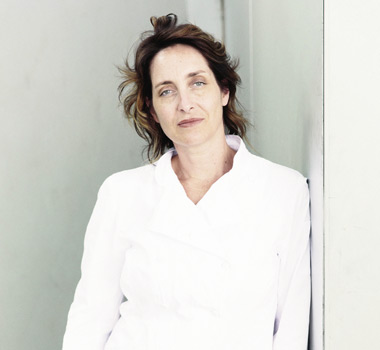
Sophie (pictured above, left) went on to cook overseas, eventually returning to WA, where she started a family and her career began to morph, a tale told by many female chefs.
Juggling work as a pastry chef with two small children, Sophie eventually decided it was easier not to be in a commercial kitchen. “It was a great decision, not only because it was the best decision for my family, but because it forced me in other directions.”
Sophie started writing recipes for magazines and newspapers, including a weekly recipe for The West Australian. “I didn’t see that work as a poor substitute to being in a restaurant kitchen.”
With her children in high school, Sophie’s career pivoted again when she established Foragers Field Kitchen and Cooking School.
“Hospitality is a tough business to be in, even more so for younger women,” says Sophie. “In most families, women are the main caregiver, not only raising children, but caring for the emotional needs of the whole family,” she says. “Many women chefs have all of those personal challenges and responsibilities, in addition to working in a kitchen and very often they’re also running their own business on the side. Resilience and adaptability are very necessary traits.”
Chef Alex Herbert agrees (pictured above, right). Like Sophie, Alex cooked in Maggie Beer’s Pheasant Farm Kitchen early in her career and has enjoyed a similarly diverse career, moving from chef and restaurant owner, to market stallholder, to consultant, to now working for Ikea on the development of their food range and products.
“I think adaptability is important for any chef, male or female,” says Alex. “Without being dramatic, it’s a job that sees you on your feet, working outside of normal hours, that’s just the way it is,” she says. “You also reach a stage of life when your ego has settled down and you look at your life away from the kitchen and decide what kind of life you want.”
Tasting success
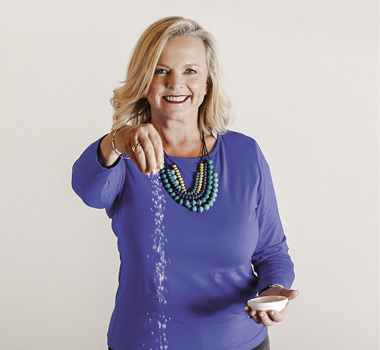
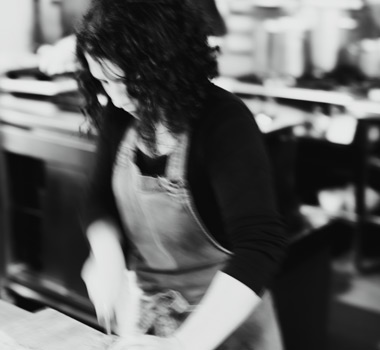
A willingness to reinvent, coupled with support from other women, is integral to success, it seems. It’s a theory Lyndey Milan OAM (pictured above, left), co-founder and patron of women’s mentoring program Tasting Success, subscribes to.
Milan has enjoyed a 30-year career in food and the Australian food media. With small children underfoot, she established a catering company, then a café and soon branched into radio, television and print. “My parents instilled the ethos: ‘you can succeed at anything if you work hard enough’”, she says.
While raising her children, Lyndey juggled regular interstate TV appearances and writing work, including launching Australian Table magazine. She then became Food Director for The Australian Women’s Weekly, a position she held for eight years, while appearing daily on her Fresh TV series, in addition to authoring nine cookbooks before becoming the Contributing Food Director for Australian BBC Good Food magazine.
In 2007, alongside co-founder Courtney Clark OAM, Milan established Tasting Success, a mentoring program for women undertaking the Commercial Cookery training certificate at TAFE. “We really wanted to instil a standard of excellence,” says Milan. “Most particularly so female chefs feel confident and supported as they enter the industry.”
The program includes media training, masterclasses, food and wine matching, food photography, testing and writing recipes, and includes 35 hours of face-to-face with a high profile chef in their kitchen. “The experience lifts the mentees out of TAFE and shows them the world of hospitality in full swing,” says Lyndey.
Life-changing mentors
Chef Rachel Potter (pictured below, left) aka The Waste-Free Chef undertook the Tasting Success program during her apprenticeship.
Potter has likewise reinvented herself across her career. “I’d had a career as a fashion designer, then as a sports educator. When my kids were old enough, I decided to enrol at TAFE to become a chef, I was 45 years old,” she says. “I discovered the Tasting Success program and applied immediately. Lyndey was incredibly generous with her knowledge and in sharing her experiences,” she says. “She was supportive and guiding. Her encouragement and wisdom as a professional and as a woman have really helped guide me.”
Mentors for the program have included chefs Alex Herbert, Peter Gilmore, Neil Perry, Tetsuya Wakuda, Matt Moran, Martin Benn, Kylie Kwong, Christine Manfield, Vanessa Jones and Michael Moore.
Lyndey partnered Rachel with chef Brent Savage of Bentley, Monopole and Yellow in Sydney. “I had to pinch myself. It was an extraordinary entry into a real-life commercial kitchen,” says Rachel. The experience proved invaluable. “It introduced me to successful like-minded people who I’ve now worked with, and who have also been supportive, including Brent, chef Mike McEnearney and Ronni Kahn of OzHarvest,” she says.
“Importantly, the mentors are a mix of male and female chefs,” says Milan. “The male chefs are very supportive. Commercial kitchens have had a reputation of having a very ‘brat pack’ mentality, and these guys won’t stand for that,” she says. “They recognise that a working kitchen can be a really tough place for a woman, both emotionally and physically. A respect for gender and diversity is essential in any kitchen, and these blokes support that notion.”
The right balance
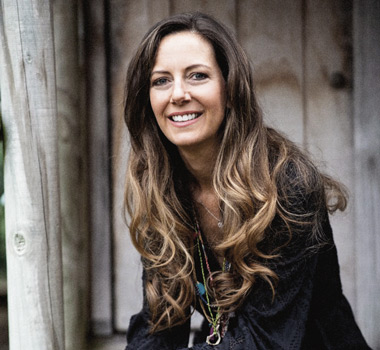
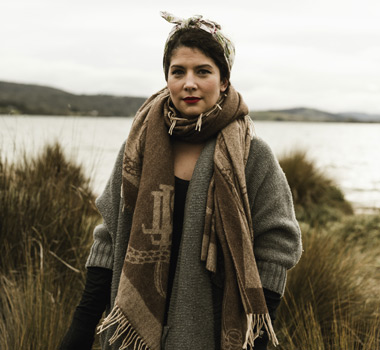
Chef Analiese Gregory (pictured above, right) has enjoyed the encouragement of a number of male chefs across her career, support she counts as integral to her success. Having worked in Peter Gilmore’s kitchen at Quay in Sydney for five years and at 3-Star Michelin restaurant Michel Bras in France, Analiese is now Head Chef at Franklin in Hobart. “I’ve been lucky enough to work for people for whom gender isn’t an issue,” she says. “Peter (Gilmore) encouraged me to be his sous chef. I don’t think the fact I’m a girl even entered his mind,” she says. “It was the same when I worked at Michel Bras.”
Analiese has also embraced reinvention. She’s moved to Hobart, bought a property in the Huon Valley and reduced her hours in the kitchen. She cites the biggest issue facing hospitality as an industry as working hours.
“We try to ensure that no one at Franklin works more than 44 hours a week,” she says. “I don’t want to work 16-to-18 hour days like I did early in my career. I want balance, time to pursue other passions. It’s absolutely important that I support my staff’s ability to do
that too.”